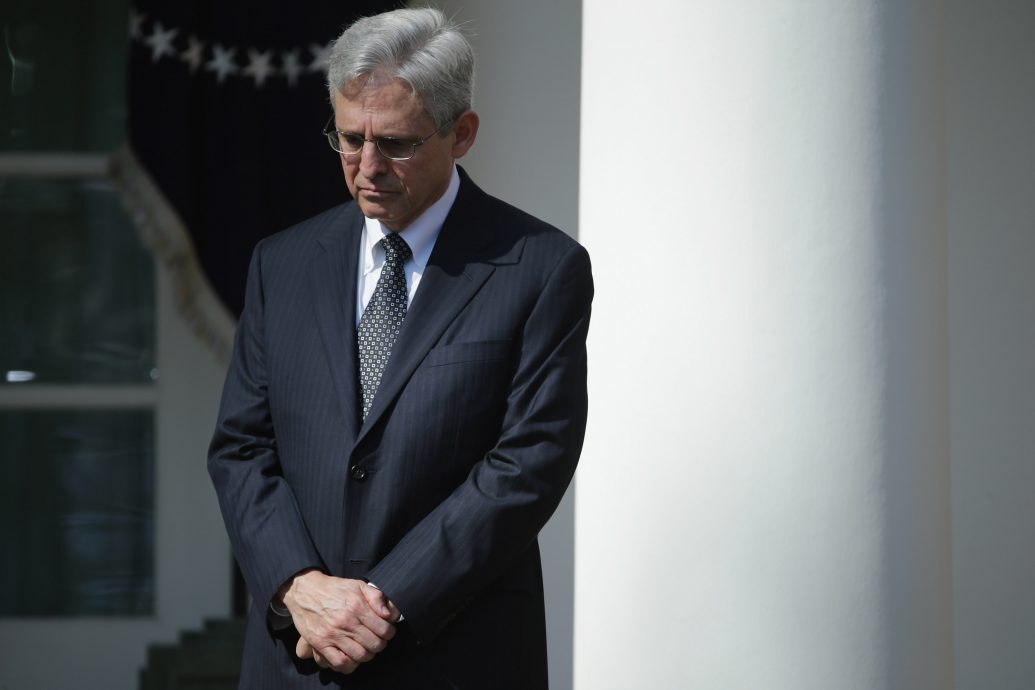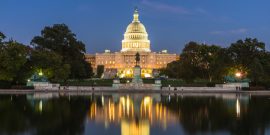Judge Garland's "Restraint" and the Anti-Politics of the Administrative State
Judge Merrick Garland may be the best for which constitutionalists can reasonably hope with a President Clinton or President Trump in the offing, but there is no basis on the record presented thus far for the popular press’ breathless conclusion—see, for example, here and here—that he believes in judicial restraint rightly, which is to say politically, understood.
The underlying problem is the conflation of deference to the will of administrative agencies with deference to the will of Congress, as though both constituted deference to the deliberate will of the people—the last of which James Madison, whose originalist credentials used to be esteemed, called “the vital principle of our free Constitution,” “the vital principle of Republican Government” and the sole principle that could preserve either the United States or “any other System of free Government.”
Deference to the administrative state does not advance that principle, and Chevron deference and deference to Congress are consequently neither legally nor politically equivalent. On the contrary, without a political justification, judicial restraint easily collapses into mere denigration of judges.
The political case is Aristotelian. It assumes that the political life is best for man and that the conditions of human flourishing include making consequential decisions by means of deliberation rather than dictation.
Judicial fiat thus undermines political life. But so, crucially, does Chevron deference insofar as administrative government elevates dictation above deliberation. Executive governance generally does so, and was intended to.
Federalist 70 says as much. In Congress, “differences of opinions, and the jarring of parties … often promote deliberation and circumspection; and serve to check excesses in the majority.” But the executive, Publius says, is manifestly designed not to deliberate. “When a resolution too is once taken, the opposition must be at an end. That resolution is a law, and resistance to it punishable. But no favorable circumstances palliate, or atone for the disadvantages of dissention in the executive department.” The executive is supposed to, well, execute that on which the legislature has already deliberated.
Chevron is consequently not about deference to the public’s deliberate will. The question Chevron presents is whether the judiciary will construe a statute or allow an agency to do so. It is thus better understood as whether the judiciary will defer to Congress, which wrote the statute, or defer to administrators, who often seek to rewrite it by means of construal—not whether the courts will usurp for themselves or defer to the elected.
Garland has suggested the choice is the latter. This misconceives the role of the executive and, for that matter, the judge, in the constitutional system, seeing the former as elected and thus superior and the latter as unaccountable and thus subordinate.
Yet the executive is representative of the people only so far as the United States or, for that matter, any republic of substantial size, can be reduced to binary terms. One can be either for or against a given President, but executives are not by institutional design intended to register—as a politically diverse body like Congress can—the subtleties of variegated public opinion and the compromises necessary to accommodate them. Getting a proposal through Congress requires public virtue: subjugating one’s immediate desires to public goods and the desires of others, for example. Executive action is a matter of will.
That much was true before the administrative state, which introduces the further difficulty of rule by technocrat. Here Garland’s appellate record—“[h]e has,” says The New York Times, “been notably deferential to executive agencies and is seen as reluctant to second-guess experts”—raises serious questions.
Technocracy is the antithesis of politics: It was the capital-P Progressive dream to suppress political difference by reducing all political questions to administrative questions. Consider some of the opening words of Franklin Roosevelt’s “Commonwealth Club Address”: “I want to speak not of politics but of government.” There is, to the Progressive mind, a difference. To speak of government was, to Roosevelt, to speak of technical matters on which there was no rational dispute because smart people had resolved them. To speak of politics was to speak of disagreements, which were regarded, in turn, as messy and unreasonable.
Congress goes along with the antipolitics of the administrative state because it represents a flight from responsibility. Judicial deference to agencies facilitates the process of letting Congress have and eat its political cake, which is to say allowing it to delegate its authority, complain about its use and do nothing to correct or reclaim it. By contrast, construing statutes directly correctly identifies blame and encourages Congress to express itself clearly—see Adam J. White on this point—and thus accountably.
A political principle for the judicial role—one based on the deliberative self-government that Aristotle and Madison alike saw as essentially human—would, in this way, clarify the nature of the situations in which deference is owed: more to Congress and, generally, to situations that facilitate political life, less to administration and technocracy.
It may well be that Garland generally believes in deference to Congress and that the administrative caseload of the D.C. circuit simply has not given expression to that view. But the difference matters. Merely to defer to someone, anyone, other than judges is not what judicial restraint means. The suggestion that it does reflects the further confusion of restraint with judicial “self”-restraint, a standard that circumvents the normal and healthy functioning of the separation of powers—in which the judiciary speaks and other branches answer, restraining when necessary—on the faulty assumption that only the courts can limit themselves.
Still less should comfort be drawn from the conflation of restraint with respect for stare decisis. Stare decisis may or may not be admirable, depending on what decision exactly is standing when the doctrine is invoked. But John McGinnis has ably dispensed with that confusion in this space by noting that deference to a higher court’s precedent is obligatory on a lower-court judge. No conclusions about Garland’s disposition toward the actual precedents he has followed—Heller and Citizens United among them—can be drawn from his proper deference toward a higher court with respect to them.
None of this is to deny Garland’s apparently ample virtues, or to suggest November is likely to produce better. His nomination may well be a bid that constitutionalists should accept. But such nominations are also opportunities for civic education and conceptual clarification. And what precisely deference means, or should, needs both. Politics, nobly understood, should be their basis.


